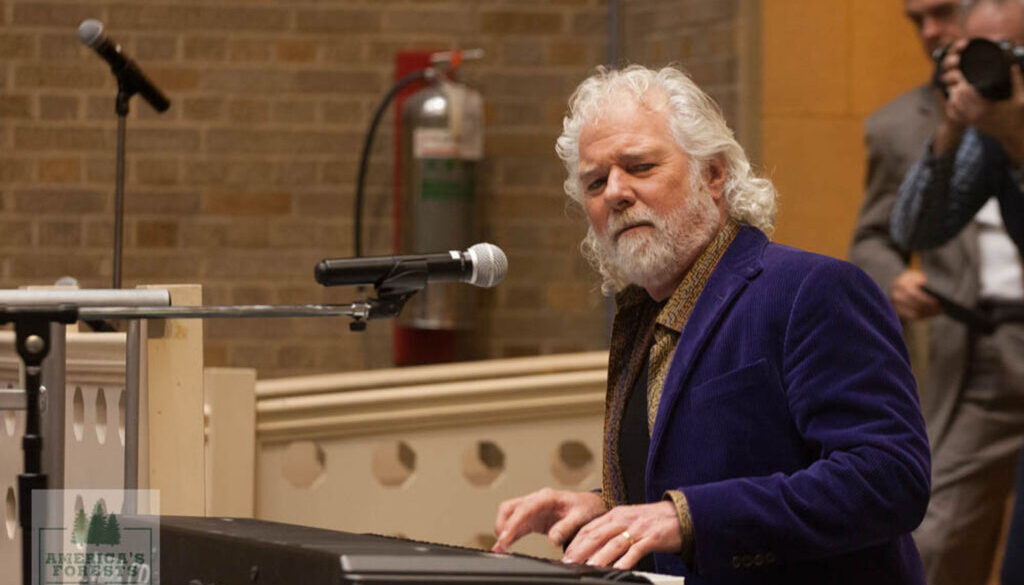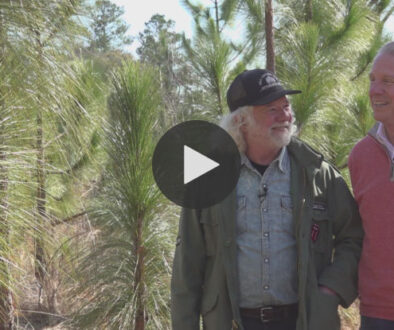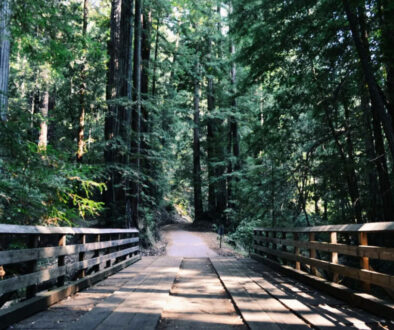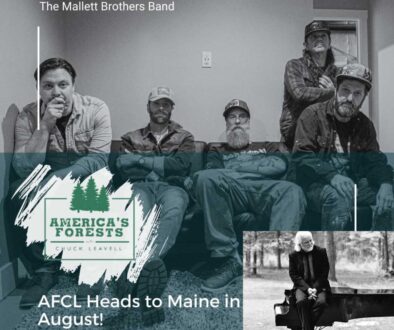The Melodic Alliance of Piano Keys and Forest Trees
A blues rift from a finely tuned piano fills the fall air in a home outside of Portland, Oregon. Legendary pianist Chuck Leavell’s fingers dance across the keys as members of a dinner party gather around and listen intently. However, the assembled audience did not come specifically to hear the acclaimed musician, whose music has been heard in the works of the Rolling Stones, Eric Clapton, George Harrison and John Mayer and so many more. This privileged audience has gathered instead to talk tree farming and sustainable forestry; Chuck’s other passions.
The home and piano belong to Paul and Sibyl Barnum. As Executive Director of Oregon Forest Resource Institute (OFRI), Paul works with tree farmers like Chuck on education focusing on sustainability and protecting America’s forests. The two met as a part of the North America Forest Partnership and joined forces to work on the filming of the TV series, America’s Forests with Chuck Leavell in mid-2016. They quickly realized they were committed to similar efforts and held similar interests in forestry, wood utilization and the environmental benefits of actively managing our forests.
Common Misconception
Throughout Chuck’s career as a tree farmer, he is asked, just what is a tree farmer, and is it really ok to cut down trees? According to Chuck and a growing number of environmentalists, the inarguable answer is that harvesting plays an essential role in keeping our forests growing and healthy.
“With sustainability being one of our main points in educating at OFRI, the common misconception is that tree farming is harmful to our forests, when it is in fact the opposite,” explained Paul. “The cycle of harvest, replanting and forest stewardship is vital to keep private forests as forests,” he says. Many states require forest landowners to replant as soon as possible after harvest. And in Oregon, it’s the law, as are protections for water and wildlife.
Harvesting is also important to ensure that overgrown forests are not fire-prone due to lack of sound management. While most of conservation and protecting forests need a “hands off” approach, managing and maintenance of forests are key contributors to a keeping forests healthy and fire resilient.
Educating Future Generations
A commonly asked question around sustainability, especially for the forestry and farming community, is what impact can I make as an average citizen? Average citizens can be given the tools which then empower them to take an active role by training and educating the lawmakers, environmentalists, and citizens of future generations.
Chuck’s Mother Nature Network focuses on sustainability and awareness. Both are promoted through adopting “responsible living” techniques for adults to adapt to their everyday life in ways they can pass off to children. Organizations such as OFRI provide adaptable curriculums for K-12, giving children the chance to learn about the importance of our forests and maintaining a healthy relationship with the outdoors by connecting them with the environment around them. America’s forests makes up 8.5% of the nation’s total land area, are full of renewable resources, and provide 6.1 million jobs to Americans.
What’s Next For America’s Forest?
“There’s a lot that still needs to be done in terms of educating and cultivating sustainable habits in our culture,” explained Paul. On a high level, preserving our forests starts with where we live and what resources we use on a daily basis and making conscious decisions.
Explore America’s forests by tuning into America’s Forests with Chuck Leavell. Follow America’s Forest with Chuck Leavell on Twitter, Facebook and Instagram. The pilot episode of America’s Forests will air at 7 p.m. April 1 on Oregon Public Broadcasting.




